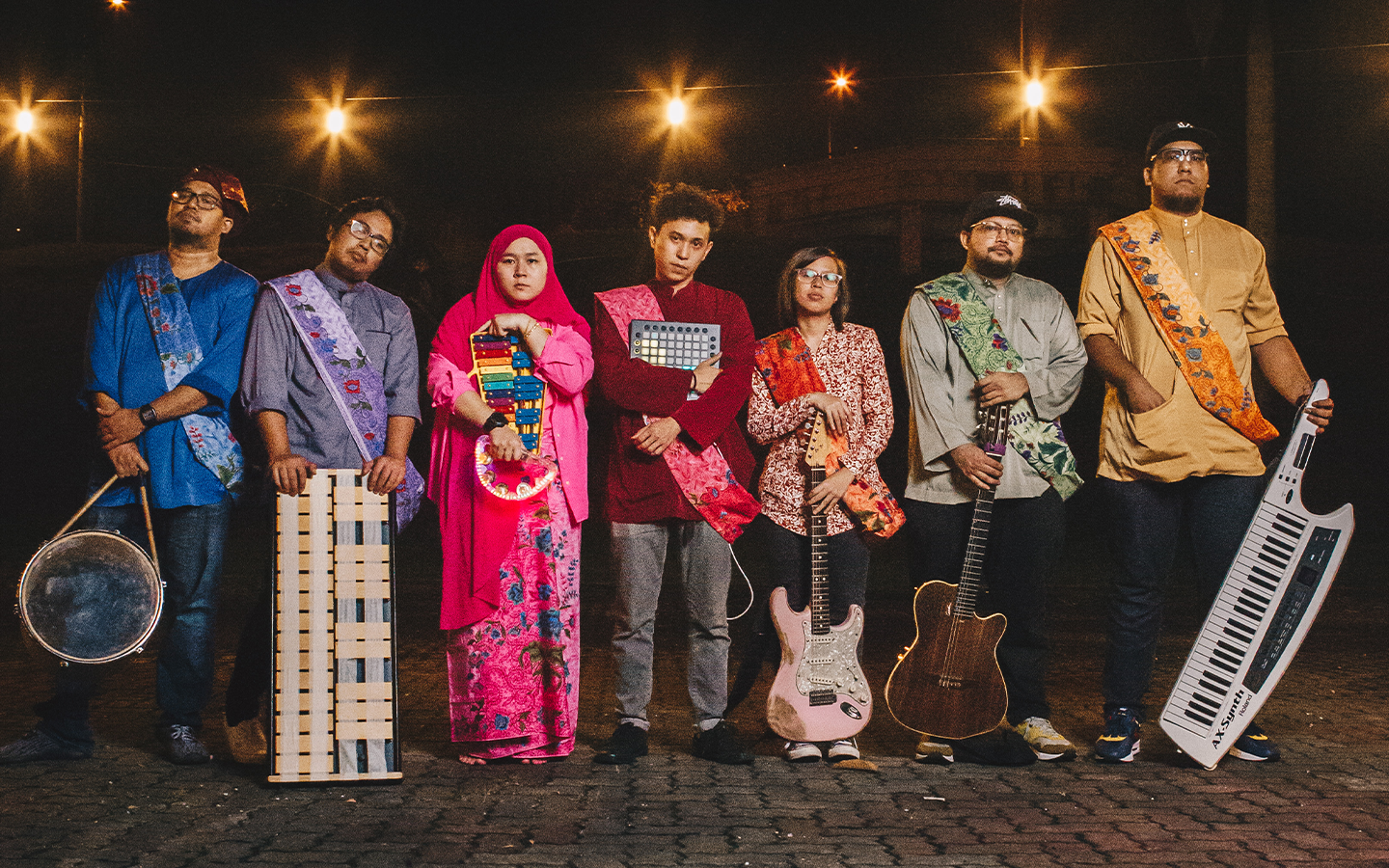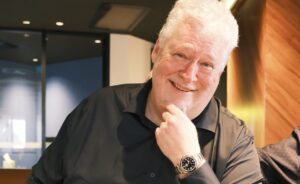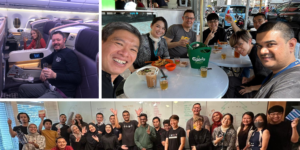The Venopian Solitude has been setting tongues wagging with their eclectic brand of music ranging from indie and folk to hip hop and sometimes plain whacky. The Malaysian founder goes by the moniker Suiko Takahara, an enigmatic female singer-songwriter whose numerous bedroom YouTube recordings gained her attention in the music industry. From a one-woman show, the act evolved into a full-fledged band which earned three local music award nominations in 2014 and they have since performed in various countries as far flung as Canada. Suiko Takahara and another band member also won Best Hip-Hop Song for their collaboration with Altimet at the AIM 2016 Awards (the Malaysian version of the Grammy’s). We quizzed the band about their background, their thoughts on the music business and of course, their latest album.
Please introduce the band and the people in it.
We are The Venopian Solitude which currently consists of seven members: Taka (composer, lyricist, vocals), Kemat (sequence & synth), Ruvi (drums & synth), Adam (bass synth/keyboard), Shafiq (percussions, clarinet), Izhar (guitar) and Irena (guitar).
How did the band come together?
It started with me (Taka) forming the band in 2009 after leaving a cover band because of a petty disagreement. Until 2013, it was a one-woman endeavour, but upon signing with Kasi Gegar Entertainment from 2013-2016, I was basically provided with sessionists. After leaving the label, Ruvi, Kemat and Ariana stayed, while Bijan (sound engineer/music producer of sorts) roped in other members over the years. We did have further changes in members but now there are seven of us.
Tell us about the music scene in Malaysia – how does a band get discovered?
Back when I first started, it was via Youtube. I posted a bunch of originals and a few covers. Nowadays, you can find new bands through Spotify, or perhaps live shows and festivals.
You’ve been performing together since 2009, and have seen the music industry change significantly. What are your thoughts about these changes and what effect (if any) they’ve had on the band and your music?
One of the main changes that I noticed was the production. Back then, there were a lot of singer-songwriters who perform alone, rarely with an accompanying band. There were also a lot of indie-rock bands after the indie boon around 2007-2009. Over the years, each band has started to explore and experiment with their sound, finding ways to fine-tune and hone their style further in order to sound unique.
The effect is that we are being healthily competitive with each other. We are always finding ways to improve the many aspects of our work, not just musically, but also visually, in terms of stage presence and visuals, album artwork, social media presence; we have even started having conceptual photoshoots. Everyone knows that music alone is not enough; effective branding is just as vital in conveying your music visually, as well as being memorable.
The band has been nominated previously for 3 AIM awards, and two of you won an AIM award for Best Hip-Hop Song in 2016.. Tell us about this win and what opportunities (if any) came your way as a result of the nominations/ win.
To be honest it doesn’t really affect our opportunities. It may have without us realising, but most of the time we are approached for just being ourselves, and bringing something to the table that no one else has brought in before. It feels like it’s only useful for street cred, as well as convincing corporate companies to take us seriously if they need a more ‘valid’ credential.
Tell us a little about your latest album, Hikayat Gundik Beriama
It is a 12-song concept album, based on the 9th song in the album called Pelacur Muzik (Musical Prostitute). The title itself is synonymous to Pelacur Muzik; Pelacur = Gundik, Muzik = Berirama. It is essentially an audio movie whereby each song represents a scene from the journey of the Pelacur, from the moment she discovers her talent, to going through the struggles, to getting fame and fortune, and finally losing it all due to greed.
The album has been in the works since 2016, and it only took us this long since our first album Hikayat Perawan Majnun (2014) because every time we needed to go back and record, we received life-changing opportunities that we could not turn down. But thanks to the lengthy period that it took to finish the album, every one of us has consumed different music and sharpened our production skills better than when we first started, so we started applying our growth into this album.
Your music is going to be onboard Malaysia Airlines and Royal Brunei Airlines from October this year. Are you excited to be reaching new, international audiences in this space?
Yes we are! It is important to listen to the song in chronological order, because it was intended to be listened that way. It will be a challenge to consume, but we hope that people would immerse themselves in the enigma that is Hikayat Gundik Berirama.





